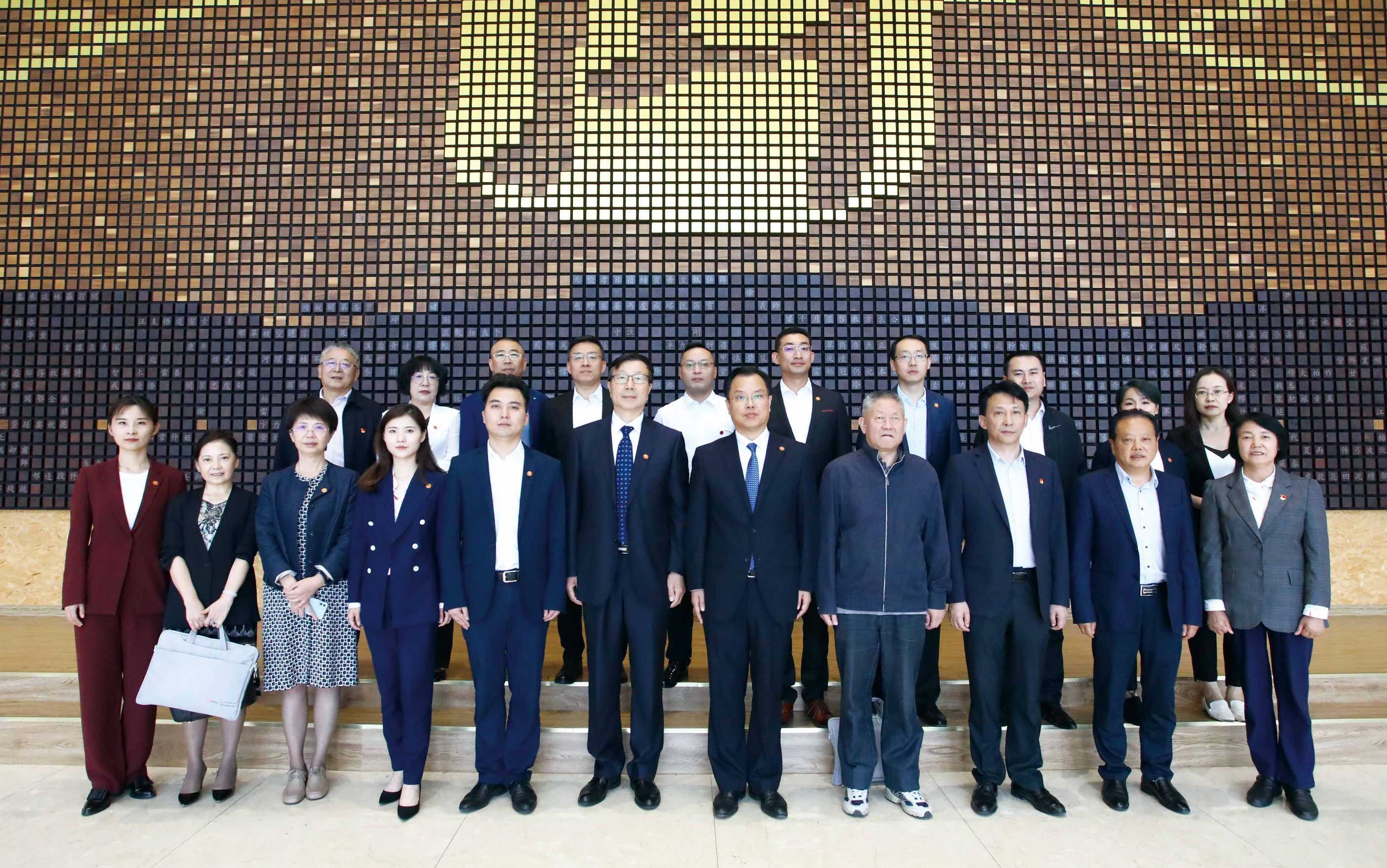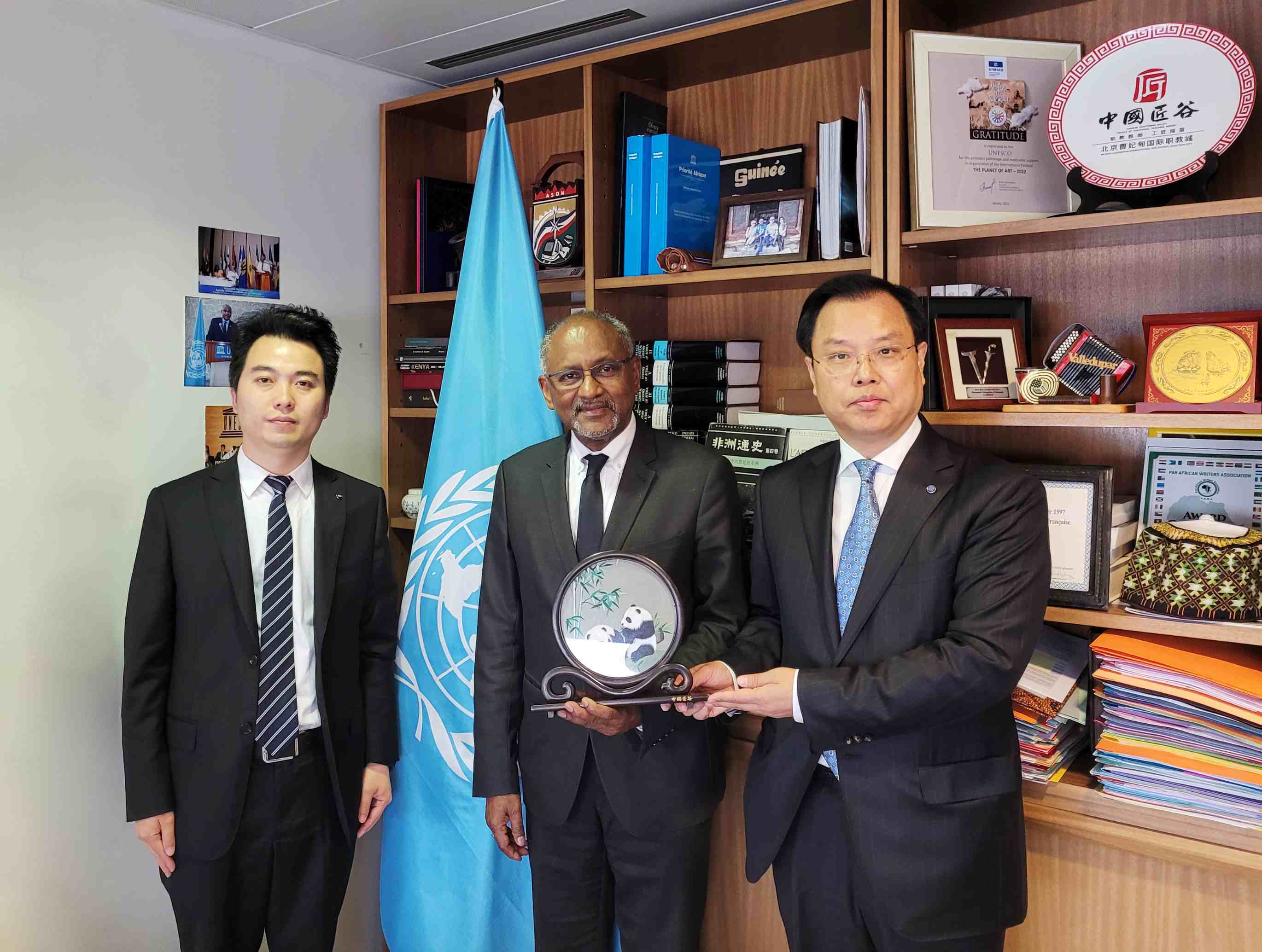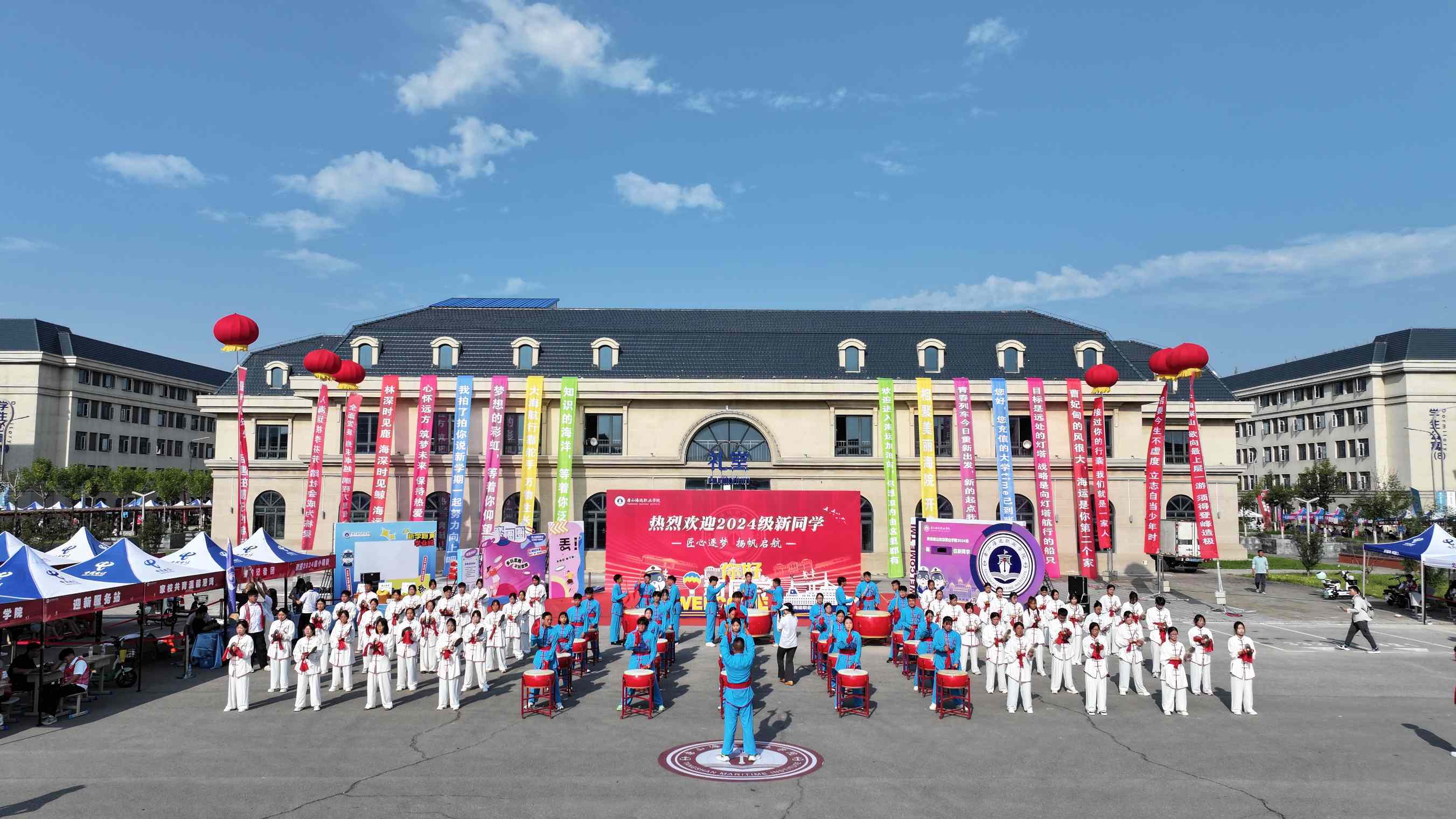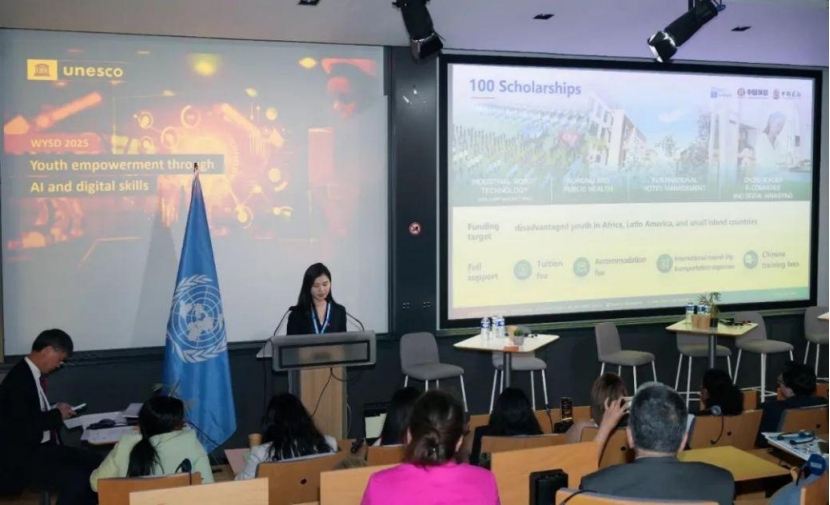Excellent Teacher Program (10) | “Messages from the Journey” — China Craftsman Valley Teachers Share Insights from Germany Training
Release time:Mar 03,2025
Through nearly a week of immersive experiences, learning, and exchanges, the third cohort of teachers in the “China Craftsman Valley Excellent Teacher Program” gained a deeper understanding of Germany’s dual education system, curriculum design, development of new courses, teacher training, student quality assessment, and Industry 4.0. They developed a profound appreciation for the dual system’s flexible teaching methods, which effectively engage students’ enthusiasm and foster a talent cultivation model emphasizing quality awareness and responsibility. The professionalism of German teachers, the foresight of German companies in training students, the German approach to work and lifestyle, and the development of Industry 4.0 left a lasting impression on the participants.
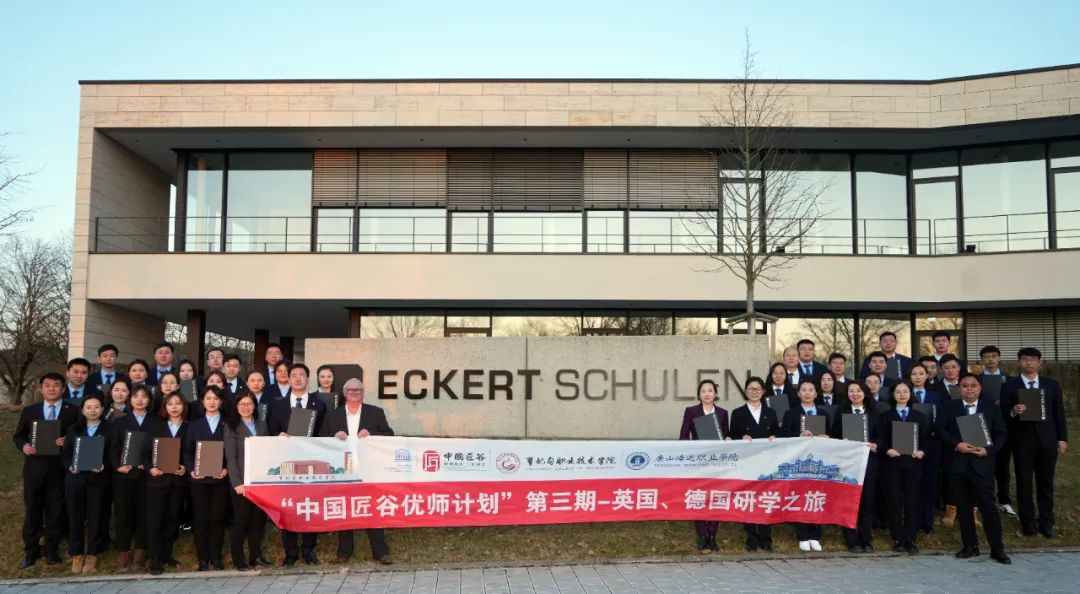
01. Li Qian, Assistant to the President, Tangshan Maritime Institute
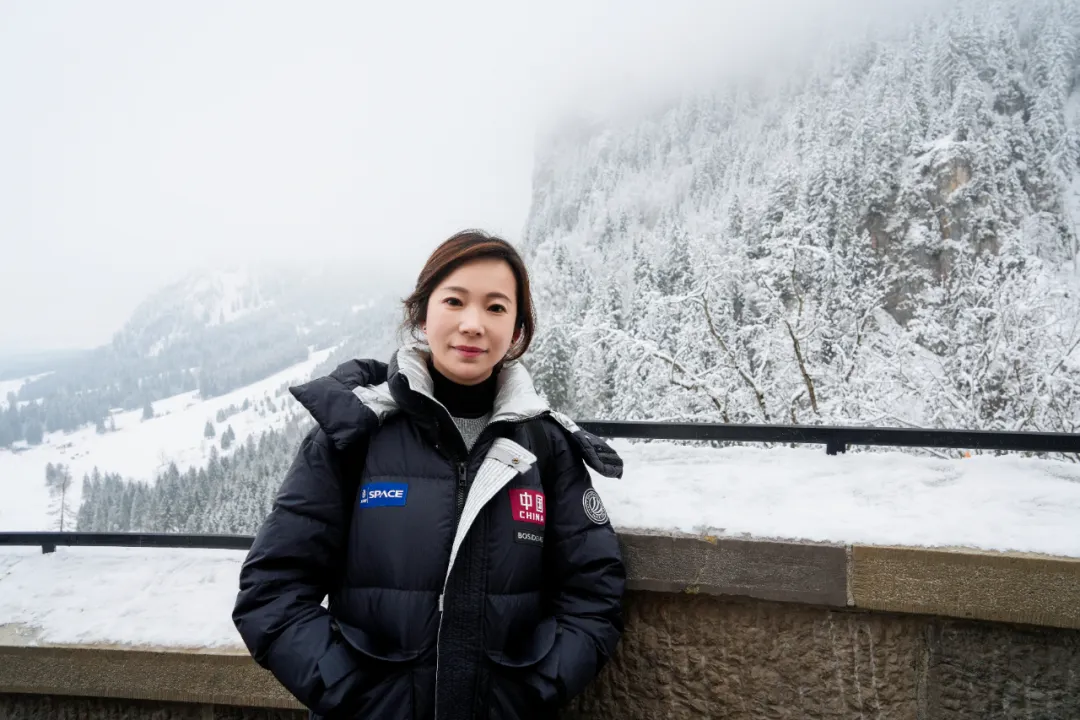
The core of Germany’s dual vocational education lies in school-enterprise cooperation. First, it emphasizes close collaboration with enterprises, aligning education with workplace needs. Enterprises participate in curriculum design, teaching plans, and internship opportunities, ensuring students acquire practical skills and experience relevant to their careers. Second, it prioritizes hands-on teaching and skill development, enabling students to master practical operations and problem-solving through internships and workplace training. Third, it focuses on career orientation, encouraging the development of professional skills and providing employment opportunities and career support. Fourth, it emphasizes building a strong teaching workforce, with instructors who are both educators and industry practitioners, combining theoretical knowledge with practical experience. Fifth, it promotes lifelong learning, with the German government encouraging enterprises to invest in employee training to enhance professional competence. In Germany, vocational education is not just a phase of learning but a lifelong process.
Liu Kun, Director of the President Office, Caofeidian College of Technology
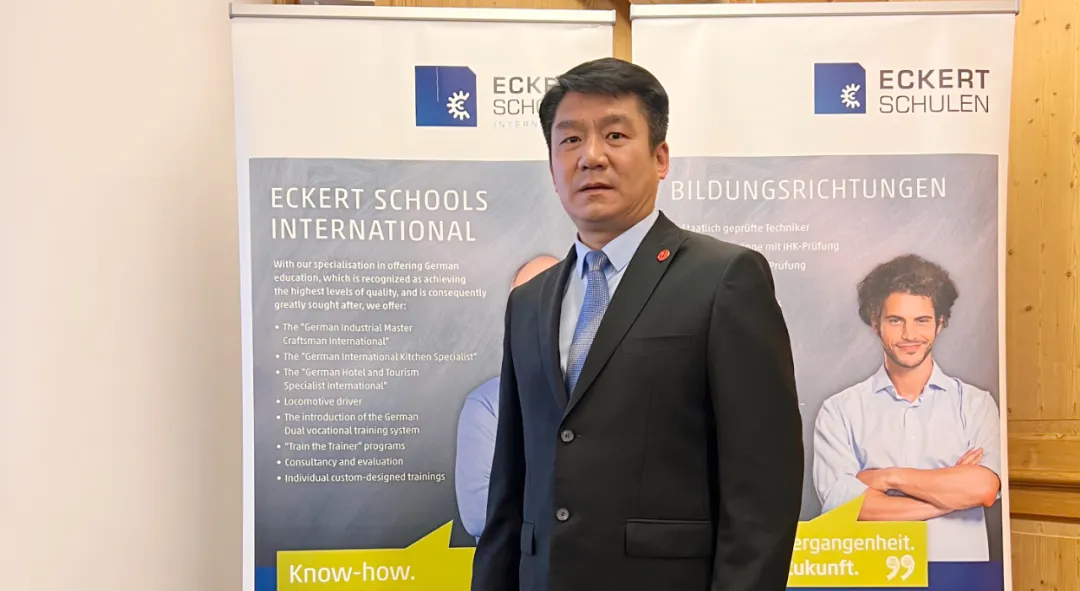
The Germany trip was an eye-opening experience, allowing us to witness firsthand the German work ethic of “rigor and standardization” and their “open and inclusive” cultural spirit. In the dual system, training integrates enterprise practice with theoretical instruction at vocational schools, complementing each other to significantly enhance learning outcomes and professional skills. A key highlight is the deep involvement of enterprises in the training process, enabling apprentices to master job-specific skills, familiarize themselves with corporate culture, and shorten the transition from learner to professional.
This career-oriented model precisely cultivates talent needed by enterprises, enabling apprentices to quickly adapt to job roles and achieving seamless integration between learning and employment. The training employs a diverse evaluation system, with enterprises and schools jointly assessing apprentices, objectively reflecting their learning outcomes and encouraging balanced development in practical and theoretical skills. The German dual system’s advantages in talent cultivation offer valuable lessons for Chinese vocational education and have marked a significant step in my professional development.
03. Zhang Qiaomei, Teacher at the School of Digital Intelligence, Tangshan Maritime Institute

The week-long training at Eckert International Academy allowed me to deeply understand Germany’s dual vocational education system. Its core lies in enterprises’ deep involvement in the entire talent cultivation process, with students holding dual identities as “apprentices” and “students.” The integration of theoretical learning and workplace practice, where students hone skills in real production environments, is an educational approach worth emulating.
The “action-oriented principle and holistic action model” left a strong impression, combining project-based teaching and interactive methods like planning games. Teachers transition from “knowledge transmitters” to “learning facilitators.” As a vocational college teacher, I will incorporate real enterprise case studies into curriculum design and leverage “dual-teacher” expertise to help students bridge the gap from skill training to professional competence.
04. Sun Zenan, Director of Teaching Affairs Department, Tangshan Experimental Secondary Vocational School

Studying the German dual vocational education model at Eckert International Academy was deeply inspiring. The dual system closely integrates school education with enterprise practice, breaking the limitations of traditional education. Students learn skills in real work environments, fostering practical abilities and professional qualities. Education should not be confined to classrooms but must align with societal needs. In the dual system, enterprises provide practice venues, participate in curriculum design, and contribute to teaching implementation. This highlights the need for teachers to build closer ties with enterprises, stay updated on industry trends, and incorporate real-world cases to make teaching more practical and forward-looking.
The dual system emphasizes student-centered, personalized training with diverse assessment methods tailored to individual needs. Its success is supported by robust legal frameworks and industry coordination. A memorable quote from the training was: “In Germany, young people under 21 are not allowed to stay idle at home.” Education reform requires collaboration among government, enterprises, schools, and society to create better learning and development opportunities for students.
05. Liu Jianan, Teacher at the School of Marxism, Tangshan Maritime Institute

The five-day training at Eckert International Academy not only enriched my knowledge but also broadened my global perspective. The insightful theoretical lectures and visits to training facilities allowed me to experience the advanced concepts of Germany’s dual vocational education system. It serves as a bridge connecting campuses to workplaces, theory to practice, and students to enterprises, providing young people with a clear career development path. This enables them to set goals, gain experience, and build a solid foundation for their future careers during critical growth stages. These advanced concepts will guide our institution toward more systematic, professional, and technology-oriented talent cultivation.
In my future work, I will apply these insights to my teaching, fostering students’ professional motivation through values, theoretical knowledge, innovation, and skills, contributing to the development of vocational education at our institution.
06. Zhou Yue, Head of Student Affairs, School of Engineering, Caofeidian College of Technology

The week-long training on Germany’s dual vocational education system was a transformative journey that opened new perspectives in vocational education. From the outset, the deep integration of enterprises and schools in the dual system was striking. Unlike traditional education, where schools and industries often operate separately, the German dual system breaks this barrier. Schools provide theoretical knowledge, building a solid academic foundation, while enterprises offer practical platforms for students to refine skills in real work settings, transforming theoretical knowledge into practical capabilities.
This dual integration model made me realize that vocational education is not an isolated academic pursuit but an ecosystem closely tied to industry needs and enterprise collaboration. As teachers, we must move beyond the classroom, engage with enterprises, and stay informed about industry trends and technologies to provide students with practical, relevant knowledge and skills.
07. Han Changhong, Teacher at the School of Digital Intelligence, Tangshan Maritime Institute

The Germany trip profoundly showcased the rigor and efficiency of its vocational education system. Visiting the Eckert Education Group allowed me to experience the core of the dual system—tight integration of theory and practice. Apprentices receive real-world training in enterprises while studying theoretical knowledge in vocational schools, enhancing practical skills and ensuring educational content aligns with industry needs.
Every detail of the trip highlighted Germany’s societal emphasis on and respect for vocational education. This “craftsman spirit” not only produces high-quality technical talent but also provides strong support for economic development. Germany’s experience offers valuable lessons for our vocational education reforms.

